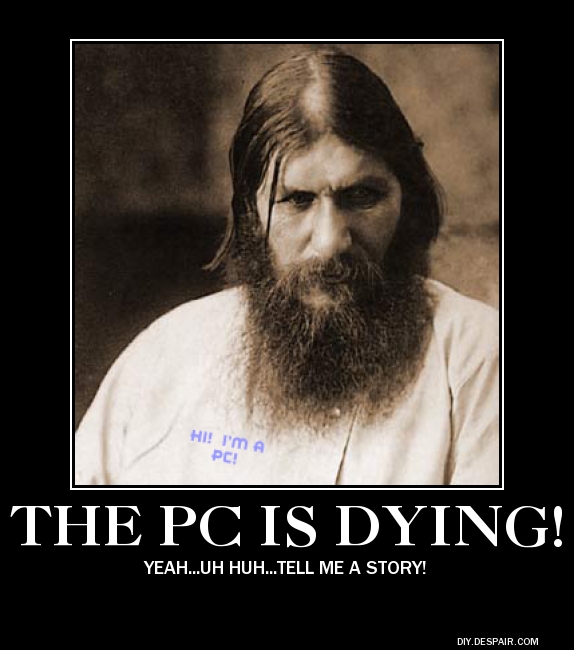HardOCP News
[H] News
- Joined
- Dec 31, 1969
- Messages
- 0
I like the way this guy thinks. 
My main PC rocks an Intel 3rd Generation Core i7-3770K CPU (4 x 3.50GHz), 24GB of ram, and 8TB of disk space. Yes, that’s eight terabytes. I’m currently using just under 5TB. I have two 24-inch screens. The thought that I could swap my PC for a tablet is laughable.
![[H]ard|Forum](/styles/hardforum/xenforo/logo_dark.png)
